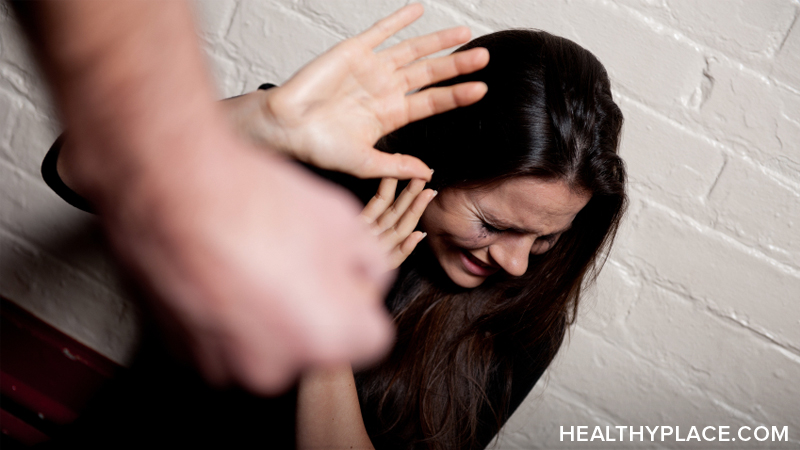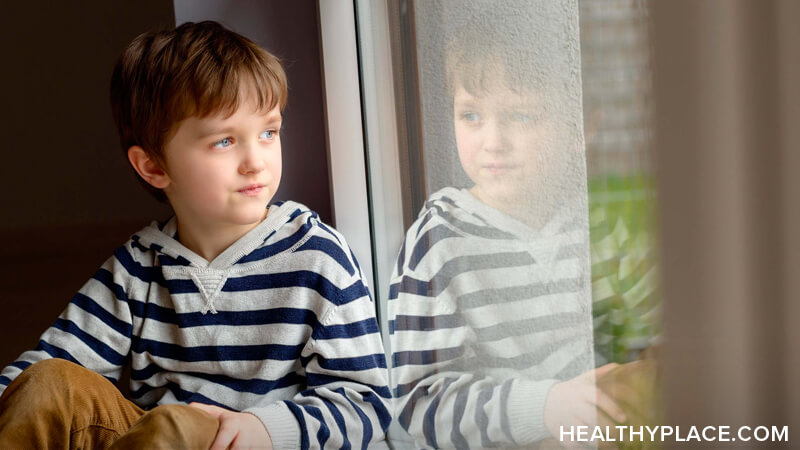-
Did the sexual revolution of the 1970's result in sexual satisfaction and comfort for women?
No. Instead of experiencing sexual liberation, many women found a paradoxical gap between unlimited sexual choices and equally limitless sexual dilemmas. (Introduction)
-
At what age is masturbation normal?
Any age is "normal" for masturbation. Very young children find and explore their genitals. At times, small girls will masturbate to orgasm. Some girls masturbate at puberty, and some when they are adults. Fewer girls masturbate than boys. It is normal for a woman to masturbate even when she is in a satisfying sexual relationship. A third or more of all women and men over the age of 70 masturbate. (Chapter 1 and 12)
-
Is there such a thing as too much sex education?
Ideally, sex education is an on-going process with questions and answers coming when children are ready for the information. Sex education does not lead to premature sexual experimentation, as we can see from European countries where sex education is more extensive and teen pregnancy, abortion, and STD's are lower than in the United States. Also, although it may not seem so, children do listen to their parents' values about sexuality. (Introduction)
-
Is there a G spot, and if so, how do I find mine?
The G spot is a small area of tissue (possibly erectile tissue similar to nipples or the clitoris) located on the front/upper wall of the vagina between the opening and the cervix. It appears to enlarge and become highly sensitive in response to direct sexual stimulation. (Chapter 3 and 4)
-
Why does it seem easy to orgasm from clitoral stimulation but so hard from intercourse alone?
Even though sexual intercourse can be very arousing and satisfying in itself, many or even most women do not orgasm from the stimulation of intercourse alone. This is because neither the clitoris nor the G spot typically receives stimulation that is sustained and intense enough for orgasm. (Chapter 4)
-
Are all women capable of having multiple orgasms?
No, nor should this be considered the premier standard of sexual responsiveness. Some women are so physically sensitive after an orgasm that further stimulation can be uncomfortable rather than pleasurable. Some women are very satisfied with one orgasm, and some women are very satisfied without orgasm during sexual activity. (Chapter 4)
-
Is it safe to have intercourse during menstruation?
Yes. Having sexual intercourse, including ejaculation, is safe and quite normal during menstruation. You can also use a vibrator or have oral sex if you choose. It is entirely a personal choice between you and your partner. (Chapter 5)
-
Can having sexual intercourse during pregnancy hurt the baby?
No. A developing fetus is well-protected against physical sensations from the outside, and the cervix has a mucus plug that blocks any direct passage of foreign material into the uterus. You should follow your healthcare provider's instructions, however, for what is healthy and safe during your pregnancy. (Chapter 5)
-
Can having sexual intercourse start labor during pregnancy?
Orgasm causes uterine contractions, but it is important to note that uterine contractions are present throughout pregnancy. Labor is not going to start because of the uterine contractions of orgasm unless the body is ready to go into labor anyway. If you are full term and "ripe" for delivery, however, semen coming in contact with the cervix can "cue" the body to begin labor. Semen contains a large amount of prostaglandin, a hormone associated with the onset of labor. Your healthcare provider should have the last word when it comes to sexual intercourse and pregnancy, especially during the final stage of pregnancy. (Chapter 5)
-
Can infertility treatment have an impact on sexual functioning?
Yes. It is common for a woman - and often her partner - to complain of temporary sexual difficulties during infertility treatment. Having sex on demand can be daunting. Some treatment procedures are invasive and can temporarily create sexual avoidance. It's also difficult to maintain a positive sense of self and body in the midst of infinitesimal medical assessments of what is going wrong. (Chapter 5)
-
Does "use it or lose it" apply more to men or women?
Women. After menopause, vaginal and vulvar tissue thin because of the loss of estrogen and diminished blood flow to these tissues. Regular sexual activity stimulates lubrication and blood flow to these vulnerable areas, and regular penetration with a penis, fingers, vibrators, or dildos can help keep the vagina from narrowing. (Chapters 2, 3, 4, and 5)
-
Does anorexia or bulimia affect sexual functioning?
Yes. Eating disorders are devastating to sexuality. The closer a woman comes to paring off all of her body fat, the lower her sex hormones. Not only can her reproductive system shut down (for example, menses cease), but also sexual desire decreases or becomes non-existent. These disorders are often associated with body hatred or self-consciousness, which can further dampen sexual interest. (Chapter 6)
-
Why is it that when my weight is down I feel sexy and interested, but the more I weigh, the less I desire?
This is a complex problem. Genitals, brains, hormones, and nerve endings don't shut down with additional weight. A woman's sexual desire often emanates from how desirable she sees herself rather than from what she finds desirable. In our culture, it's a challenge for a woman to feel desirable when her weight goes up. The media reinforces in our minds the connection between perfect bodies and good sex. Encouraging body dissatisfaction sells beauty and fashion products. Keeping women dissatisfied with their bodies is good for business but bad for sex. (Chapter 6)
-
Does exercise have any sexual benefits?
Yes. Exercise serves as an "on switch" for hormones. It increases energy and self-esteem. Improved pelvic muscle tone enhances orgasms and sexual response. (Chapter 6)
-
I exercise and I'm not really overweight, but I hate my body. What can I do about that?
First, ask yourself what you your life would be like if you had the body you yearn for. If you ponder this question long and far enough, you may become aware that physical appearance is not the road to personal fulfillment. It's important to stop negative thinking about our bodies, but it takes practice. You have to identify the self-defeating thoughts, catch yourself when you slip into using them, and substitute encouraging thoughts for the negative ones. (Chapter 6)
-
I have cancer-how do I get good information about my sex life in this circumstance?
Don't give up; it's essential that you get educated about your illness and how it and your treatment impact sexuality. Ask your nurse or social worker where you get your medical treatment about resources and recommendations. Join an Internet chat group that can connect you with other women who have been through similar circumstances. (Chapter 7)
-
I have a chronic illness, and my treatment has affected my sexual arousal; I don't lubricate. Is there any hope?
Yes. Ask your doctor to discuss all aspects of your treatment and how they impact genital blood flow. Illness, medications, and treatment can contribute to the situation. Pay attention to whether there are symptoms of depression, which can also dampen arousal and contribute to fatigue. A number of herbal supplements, medications, and devices are being studied for their effectiveness in increasing sexual arousal. Viagra, for example, may help pelvic blood flow in cases like yours, although studies are continuing and at this point Viagra is not FDA approved for women. (Chapters 7 and 13)
-
I am in a wheelchair. I am pretty, witty, and I've never been on a date. Why am I seen as asexual? You know you are sexual despite challenges. Unfortunately, our culture overidealizes perfect bodies. You may be marginalized from the sexual mainstream because your situation may threaten others with the disturbing awareness of their own vulnerability. You don't have to settle for this: get educated and connected through support groups, the Internet, and other resources in your community. (Chapter 7)
-
I have a spinal cord injury. Is it possible for me to have an orgasm?
Very possible. About 50% of women with spinal cord injury, even with complete injury, continue to be orgasmic. Drs. Whipple and Komisaruk have researched this phenomenon extensively and propose that the vagus nerve may provide a sensory pathway from the cervix and vagina to the brain that bypasses the spinal cord. (Chapter 7)
-
How do I deal with my developmentally disabled daughter's emerging sexuality?
Sexuality and developmental disability are equated with vulnerability. As a result, parents are often over-protective, which can create even more vulnerability. A young woman with cognitive limitations needs more, not less sexual education. She won't be a perpetual child, no matter how much you would wish it. Help her to make non-sexual decisions in her life as early as possible, so she will be prepared for more discriminating decisions as her life progresses. (Chapter 7)
-
I have severe pain with intercourse. Is there anything I can do except give up sex altogether?
Yes. First get medical help ASAP; pain during sex requires a comprehensive evaluation. If a healthcare provider minimizes your problem (a common response may be "I can't find anything wrong-just try relaxing"), keep looking for a medical professional who will take you seriously. Medication, physical therapy, medical treatment, and specialized counseling can be enormously effective. (Chapter 8 and Resources)
-
I have a condition called Vaginismus. I'm told it is in my head, but talking to my therapist about it hasn't helped. Any suggestions?
Vaginismus (the involuntary tightening or spasming of the pelvic floor muscles near the opening of the vagina) is happening in your body, even if the cause was psychological in the first place. This symptom is stubborn but highly treatable. It requires a specialized approach combining medical evaluation, sex therapy, and, ideally, physical therapy. (Chapter 8 and Resources)
-
Why does the United States have one of the highest rates of sexually transmitted diseases (STDs) in the industrialized world?
It's ironic that in an age of supposed sexual enlightenment, STDs are rampant even though transmission in most cases is preventable. Sex education is failing: in a 1995 Gallup study, 26% of adults and 42% of teen respondents could not name an STD other than HIV/AIDS. Legislators avoid dealing aggressively with STDs because it isn't politically correct to do so, and television - one of the greatest educators of modern times - virtually ignores STDS. (Chapter 9)
-
I've heard women are more susceptible to STDs than men. Is this true?
Yes. STDs are spread through physical contact. These organisms enter the body through mucous membranes, areas of skin that are moist, warm, and hospitable to bacteria and viruses. Because a woman's genitals contain more mucous membranes and can retain body fluids from another person for a longer time, a woman is more at risk than a man for contracting a sexually transmitted disease. (Chapter 9)
-
Can trauma other than sexual abuse cause sexual problems later?
My mother used to have explosive rages when she was drinking, and now I find I can't relax with my partner sexually, even though I want to. Yes, non-sexual trauma can cause sexual problems. When you are exposed to trauma (in some cases even witnessing trauma), your body and brain go into a self-protective state of emergency. Unfortunately, long after the original event, certain triggers can prompt your brain to revert to this emergency state. This state of hypervigilance can make relaxation during sex very challenging. (Chapter 10)
-
Is there sex after kids?
Yes - if sex is a priority. In order to sustain a satisfying sex life after kids, couples need to apply the same creativity and ingenuity that they use to manage their family's hectic schedule. They realize that the belief Spontaneity is necessary for great sex is a myth. They find time for sex by pre-planning because if they waited for it to occur spontaneously, sex could become non-existent. (Chapter 12)
-
Isn't fantasizing a form of cheating?
No. Sexual fantasies - the thoughts, ideas, and images that you find exciting - are perfectly normal and part of the sexual experience of people everywhere. It's important to remember that fantasies are not necessarily wishes. As a matter of fact, research has shown that people often fantasize about things that they would never act on in real life, even if the opportunity presented itself. Sexual fantasies provide a valuable way to keep attention focused during a sexual experience. Using fantasy to intensify your own excitement doesn't detract from the basic significance of your lovemaking- that you are freely choosing to share with your partner one of the most personal and intimate ways of experiencing pleasure. (Chapter 12)
-
Shouldn't people who have a satisfying sexual relationship give up masturbation?
No, not if they don't want to. Masturbation has been seen as a social taboo, which is unfortunate. Self-pleasuring is a positive thing to be enjoyed and valued. Depending on the study, between forty and seventy percent of married women and men masturbate even though they have sexual partners. And many of these people report having wonderful, satisfying sexual relationships with their partners. Emotionally, masturbation may not compete with the joy of making love to your partner, but that doesn't mean that masturbation can't be enjoyed in its own right. (Chapter 12)
-
What if one partner wants sex a lot more than the other?
First, it's important to acknowledge that two people can have normal sex drives that differ dramatically. There are many reasons why two people may differ in how frequently they want to have sex. The discrepancy may be just one more example of the normal differences that can exist between people. It may be due to fluctuations that occur in time and circumstances. It may be due to problems in the relationship. It may be the result of one partner having a greater need for reassurance or for distance. Having sex with your partner out of a sense of obligation is not the answer-resentment will surely be the long-term result. Likewise, shaming and trying to make the partner with the less-intense sex drive feel guilty will inevitably create tension in the relationship. Solutions vary according to the cause, but for starters it is important to remember that any disagreement, whether it involves sex, money, in-laws, or parenting, can be better handled when the communication is marked by honesty, sensitivity, and mutual respect. (Chapter 12)
-
When my doctor gives me only a few minutes to ask questions, how can I bring up embarrassing sexual problems?
When you go for your appointment, have your questions about the sexual problem written down. Mention to the medical assistant who puts you in the exam room that you have several important questions for the healthcare provider and would like to ask them while you're still dressed in street clothes. Remaining dressed until you've discussed your questions offers a number of advantages. It will help you feel more comfortable while discussing your sexual concerns. It will let the healthcare provider know right from the start that you have concerns you wish to discuss. And it will prevent you and the healthcare provider from dashing over the questions because they were left to the final moments of the appointment. Be prepared to answer the following: what is the problem, including when you first experienced the problem and under what circumstances; what is your understanding of the problem; and what have you done about it? If you have had relevant tests in the past, be sure to bring those results to the present appointment. (Chapter 13).
-
In this age of advanced technology and media availability, how can I tell if the information I'm getting about sex is sound and accurate? Every day dozens of television talk shows do features on sexual issues. But remember, their prime objective is to entertain, not to educate, so the information is not always reliable or helpful.. Internet websites and self-help books can be important resources, but readers and surfers should look for the credentials of the authors or the authenticity of the website source. Things to look for in so-called sexperts are advanced degrees in relevant fields like medicine, nursing, psychology, social work, etc.; professional certification as sex educators or therapists; and/or affiliation with a reputable university. (Chapter 13)
-
Isn't it true that sexual problems are primarily in one's head?
Looking at it another way, the solution, not the problem, may be in one's head. After a comprehensive look at the medical aspects of the problem, it is important that a person reviews his or her own sexual beliefs and values. Negative attitudes and misinformation can create or contribute to sexual problems, but those negatives can be replaced with positives, and misinformation can be corrected. Knowledge and a healthy acceptance of your sexuality can eliminate many problems and reduce the severity of those problems that have a medical cause. (Chapter 13)
-
How do I know if I have low sexual desire? My partner wants to have sex much more often than I do, and suggests it is my problem. Although low sexual desire is a common sexual problem, it is difficult to measure. Ask yourself if you ever have sexual thoughts or interest in being sexually aroused. If you thoughtfully answer yes, rather than you having low sexual desire, you and your partner may have a sexual discrepancy issue in your relationship. (Chapter 14)
-
Since I've been taking medication for depression, my sexual desire has hit the basement! Do I have to choose between my mental and sexual health?
No. Some antidepressant medications may decrease sexual desire, while a substitute medication may leave sexual desire intact. Or your physician may decrease your dosage or prescribe an additional medication that offsets the medication side effects. Be persistent to find a solution. (Chapter 14)
-
Is there a for women?
Studies are being done right now on drugs that may help increase blood engorgement of vulvar tissues, genital sensitivity, and lubrication. Viagra is a vasodilator (a medication that dilates blood vessels) that may be helpful for some women who have arousal problems due to illness or menopause, but at this time the FDA has not approved Viagra for women. Testosterone and herbal remedies such as ginkgo biloba, ginseng, DHEA, dong quai, and L-Arginine also have been reported to help with problems of low sexual arousal. (Chapter 15)
-
I have noticed a recent difference in my ability to lubricate. What should I consider in evaluating this problem?
First, have a medical examination to see if there are any medical factors interfering with lubrication. Review whether in recent months you have felt sexual desire. Monitor what happens in your body if you are sexually stimulated. Consider whether you can maintain a focus on sexual activity and relax enough to let go. These insights will help you determine whether the problem is primarily physical or emotional/relational. (Chapter 15)
-
I don't have orgasms with sexual intercourse. Is this a sexual problem?
No, not unless you think it is a problem. If you're enjoying sex, no orgasm is no problem. If you decide orgasms are something you want, there are resources to help you achieve this goal. It may be important to know that many, if not most, women do not have orgasms from sexual intercourse alone. (Chapter 16)
-
I often feel very close to an orgasm that never happens, and this is frustrating for me and my partner. Do other women experience this?
Yes. You (or your partner) are probably watching obsessively for signs of a pending orgasm. We call this "orgasm watching." Arousal gets replaced with being a spectator in your own sexual experience, so that you are not sufficiently focused on the eroticism of the moment. This distraction can prevent full arousal and orgasm. (Chapter 16)
-
I can have an orgasm with a vibrator, but my partner worries that the vibrator is replacing him. He tells me that if I rely on a vibrator it will be the only way I'll respond sexually. True?
False. There is no scientific foundation for the concern that you could become dependent on or addicted to your vibrator. A vibrator can enhance sexual pleasure and help women with low arousal, but most women will state that a vibrator will never replace the closeness and sensation they feel with their partner. (Chapter 16)
-
How do I determine if I am a lesbian?
For some women, sexual orientation can take some time to unfold. The very fact that you have asked this question implies that you will need time, experience, and reflection to determine the answer for yourself. In this process of discovery, consider these questions: 1) Were you attracted to heterosexual images as you were maturing? 2) Did you date guys? If yes, was it to prove your attraction to males? 3) Are you comfortable with your sexuality? 4) Are you primarily attracted to women, but fear rejection by others? 5) Are women, men, or both the subject of your sexual fantasies? (Appendix)
-
What is sex therapy?
Sex therapy, like most forms of therapy, is designed to be both a healing and a growth process. What makes it distinct from other forms of psychotherapy is that what brings the person through the office door is a sexual problem, as opposed to anxiety, depression, or stress. Even so, sex therapy doesn't focus solely on sex. Our sexuality is woven into our lives, making it impossible to isolate the focus of therapy on sex alone. Through the process of sex therapy the client or the couple is encouraged to find pleasure in their sexuality and to become more comfortable giving and receiving pleasure. Treatment will include identifying and examining feelings, gaining insight into reasons for maladaptive behavior, improving communication, learning new ways to approach old problems, and building on the client's or couple's inherent strengths. (Chapter 17)
-
How do I find a sex therapist?
The American Association of Sex Educators, Counselors and therapists (AASECT) is a national organization that certifies sex therapists. They maintain a current roster of certified sex therapists and will provide you with a list of sex therapists in your area. Phone 804-644-3288 or log on to www.aasect.org. (Chapter 17)






 Many people want to know what causes bipolar disorder in kids. This is understandable for so many reasons, not the least of which being parents wanting to know if they can prevent it in their child. After all, bipolar disorder in kids can be very debilitating. But the causes of childhood bipolar disorder are complex and not well understood.
Many people want to know what causes bipolar disorder in kids. This is understandable for so many reasons, not the least of which being parents wanting to know if they can prevent it in their child. After all, bipolar disorder in kids can be very debilitating. But the causes of childhood bipolar disorder are complex and not well understood.